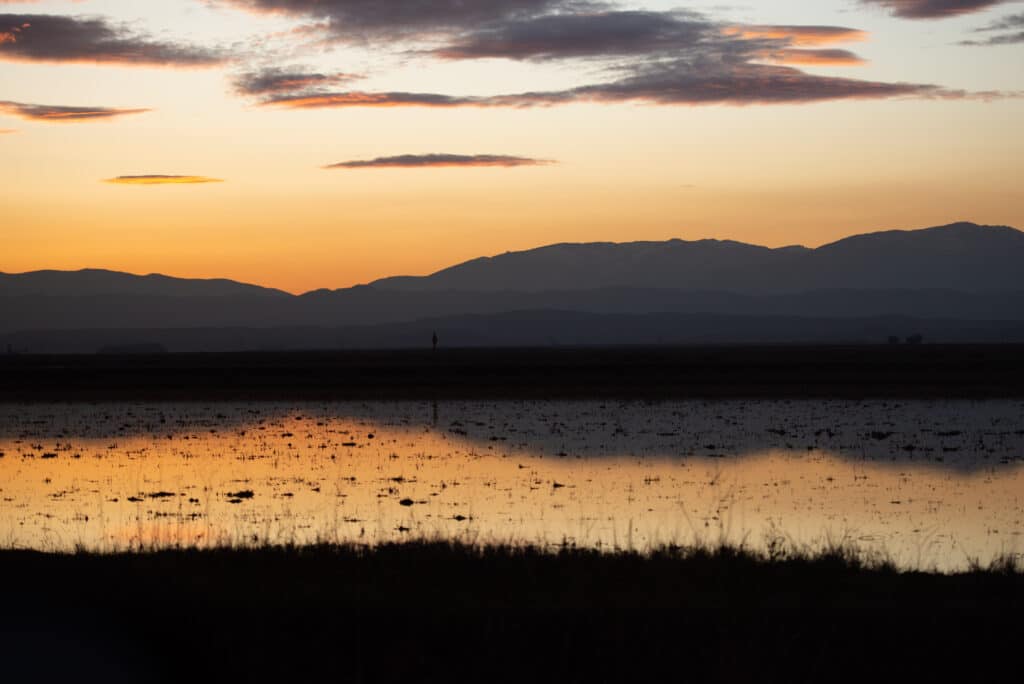TFT partners with American Farmland Trust to conserve and protect freshwater resources in San Joaquin Valley
May 26, 2020
American Farmland Trust (AFT), whose mission is protecting farmland, promoting regenerative agriculture and helping farmers thrive, has joined forces with The Freshwater Trust (TFT). The regional river restoration and water conservation nonprofit will employ a new tool to help AFT identify and prioritize on-farm projects and easements that will result in the greatest outcomes for surface and groundwater resources in the San Joaquin Valley.
The team will employ TFT’s BasinScout® Platform, an interactive tool, co-developed by TFT and Upstream Tech (UPS), for prioritizing and tracking outcomes of site-specific agricultural management and conservation actions towards watershed goals.
AFT received a grant of $10 million through the Natural Resources Conservation Service’s (NRCS) Regional Conservation Partnership Program to work collaboratively with farmers and ranchers to address some of the region’s pressing water quality and quantity challenges and to protect the farmland with the greatest potential for groundwater recharge. The BasinScout Platform will help guide where best to take action in Madera County.
“AFT looks forward to using this cutting-edge technology on this important collaboration, which will prioritize the most effective conservation projects on the ground in this critical food producing area,” said Kara Heckert, AFT California regional director.
Using satellite imagery and public and private data sets, BasinScout Platform identifies the most cost-effective projects – and combinations of projects – that increase infiltration and minimize irrigation demand, flood risk, and sediment and nutrient runoff.
“Put simply, our tool will help AFT figure out how to get the biggest bang for their buck,” said Nick Osman, conservation project manager for TFT. “It can quickly assess where improvements, such as irrigation upgrades or cover cropping, would make the biggest difference. They’ll be able to use their grant dollars in the most cost-effective and outcome-focused way possible. Conservation and restoration projects should always have this type of data and knowledge behind them, but unfortunately, it’s rarely the case.”
In addition to improving the strategic planning of projects, the platform will also help AFT track the benefits of projects as they are implemented throughout the five years of NRCS funding, to quantify the ground and surface water benefits achieved.

Parched rivers, subsiding aquifers and a dry Mediterranean climate in the Sacramento-San Joaquin Valley have provided California and TFT the opportunity to consider new approaches for integrated water resource management.
TFT’s work in California centers upon the Sacramento-San Joaquin Valley, also known as the “nexus of California’s statewide water system.” While the largest agricultural producing region in the state, it faces significant groundwater and surface water challenges that are expected to increase in severity with climate change, such as the loss of Sierra snowpack and increased evapotranspiration, or the loss of water into the atmosphere.
The Sustainable Groundwater Management Act, a California law passed in 2014, mandated the creation of Groundwater Sustainability Agencies (GSAs), local groups that are responsible for ensuring regional groundwater supplies are sustainably managed. The GSAs are charged with developing and implementing a plan to make their local groundwater usage sustainable by 2040.
With the BasinScout Platform, AFT will have the ability to create customizable, optimized implementation plans for distributed, on-farm projects that are explicitly designed to cost-effectively achieve multiple, specific groundwater and surface water sustainability targets, such as those defined by GSAs or through the Irrigated Lands Regulatory Program, a program developed in 2003 to prevent agricultural runoff from impairing surface water quality.
“In California, there are many driving forces and options for improving water in the state,” said David Primozich, TFT’s Conservation Director. “There’s money to be spent and actions to take, but it needs to be strategic action and smart spending. Tools like the BasinScout Platform make both of these things once thought impossible, possible.”
Certain actions taken on farmland, including cover cropping and upgrading irrigation equipment to more efficient systems, can improve groundwater quality and quantity. For example, cover cropping reduces erosion and nutrient runoff. It also helps soil retain moisture and allows groundwater to be recharged more quickly.
The BasinScout Platform assesses the current conditions of a geography through satellite imagery. Then, upon defining a specific goal, such as reducing irrigation demand, and a total budget for a program, the platform automatically determines which combination of best management practices and location will be best to meet the identified target.
“One improvement practice on one farm is great if you plan it well,” said Osman. “But when you plan many on-farm improvements collectively, and look at things at a basin scale, there are much greater benefits.”
AFT has worked with farmers in the San Joaquin Valley for more than three decades. They expect that this partnership will help them deliver conservation plans for increasing recharge potential and water conservation on lands encompassing at least 100,000 acres with 150 to 200 producers.
“Farmers are at the heart of fixing freshwater issues,” said Primozich. “We are fortunate that our tools can be one part of showcasing this fact.”
#American Farmland Trust #BasinScout #California #farming #groundwater
